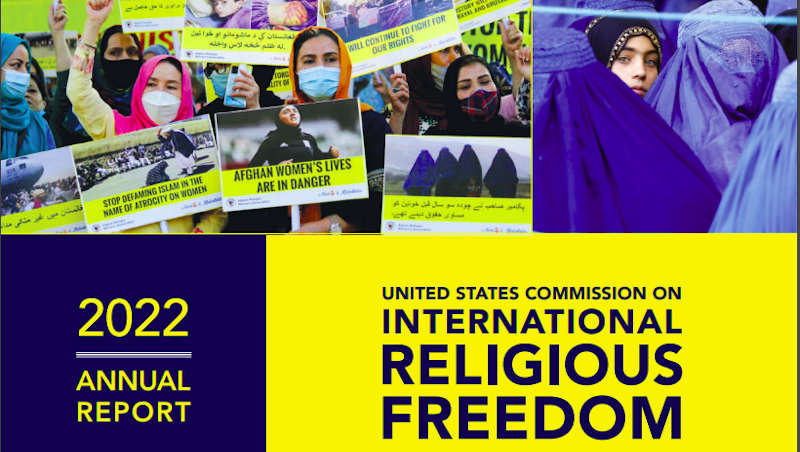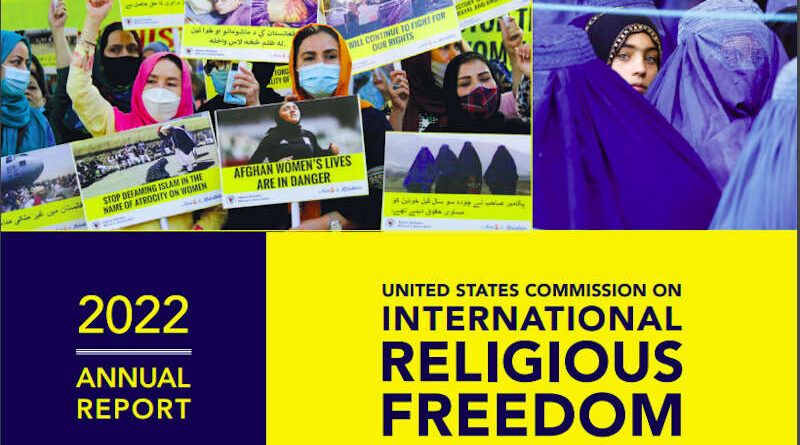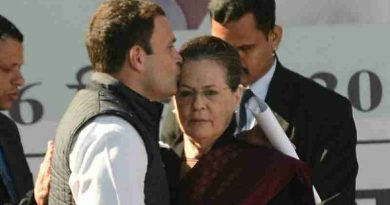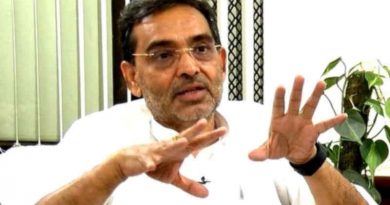U.S. Report Reveals Extreme Religious Freedom Violations in India

The USCIRF report adds that the U.S. Congress should raise religious freedom issues in the U.S.-India bilateral relationship.
By RMN News Service
In its 2022 annual report released on April 25, the United States Commission on International Religious Freedom (USCIRF) has reported a number of religious freedom violations in India. In 2021, according to the report, religious freedom conditions in India significantly worsened.
During the year, the USCIRF report adds, the Indian government headed by prime minister (PM) Narendra Modi escalated its promotion and enforcement of policies—including those promoting a Hindu-nationalist agenda—that negatively affect Muslims, Christians, Sikhs, Dalits, and other religious minorities.
The Modi government continued to systemize its ideological vision of a Hindu state at both the national and state levels through the use of both existing and new laws and structural changes hostile to the country’s religious minorities.
In 2021, the Indian government repressed critical voices—especially religious minorities and those reporting on and advocating for them—through harassment, investigation, detention, and prosecution under laws such as the Unlawful Activities Prevention Act (UAPA) and the Sedition Law.
The UAPA and Sedition Law have been invoked to create an increasing climate of intimidation and fear in an effort to silence anyone speaking out against the government, the USCIRF report said.
Government action, including the continued enforcement of anti-conversion laws against non-Hindus, has created a culture of impunity for nationwide campaigns of threats and violence by mobs and vigilante groups, including against Muslims and Christians accused of conversion activities.
The USCIRF report came close on the heels of a similar report released on April 12 by the U.S. Department of State which has reported extreme corruption and human rights violations in India.
In an exclusive section, “Corruption and Lack of Transparency in Government,” the U.S. State Department report asserts that the law provides criminal penalties for corruption by officials at all levels of government in India. However, officials frequently engaged in corrupt practices with impunity while there were numerous reports of government corruption during the year.
Further, the USCIRF report adds that the anti-conversion laws have increasingly focused on interfaith relationships. Existing laws in approximately one-third of India’s 28 states limit or prohibit religious conversion.
Since 2018 (and continuing in 2021), multiple states have introduced and enacted laws or revised existing anti-conversion laws to target and/or criminalize interfaith marriages. Public notice requirements for interfaith marriages have at times facilitated violent reprisals against couples.
Authorities also assisted, if not encouraged, the targeting by nonstate actors of interfaith couples, converts, their families, and their religious communities in an effort to prevent interfaith marriages.
National, state, and local governments demonized and attacked the conversion of Hindus to Christianity or Islam. In October 2021, according to the USCIRF report, Karnataka’s government ordered a survey of churches and priests in the state and authorized police to conduct a door-to-door inspection to find Hindus who have converted to Christianity.
The report explains that in June 2021, Yogi Adityanath, chief minister of Uttar Pradesh, warned that he would invoke the National Security Act, which allows for
the detention of anyone acting in any manner that threatens the security of the state, and that he would also deploy a team of over 500 officials to counter those (including, by his account, children) who were carrying out conversion activities.
In its recommendations, USCIRF urges the U.S. government to designate India as a “country of particular concern,” or CPC, for engaging in and tolerating systematic, ongoing, and egregious violations of religious freedom, as defined by the International Religious Freedom Act (IRFA).
It also recommends imposing targeted sanctions on individuals and entities responsible for severe violations of religious freedom by freezing those individuals’ or entities’ assets and/or barring their entry into the United States.
The USCIRF report adds that the U.S. Congress should raise religious freedom issues in the U.S.-India bilateral relationship and highlight concerns through hearings, briefings, letters, and congressional delegations.





